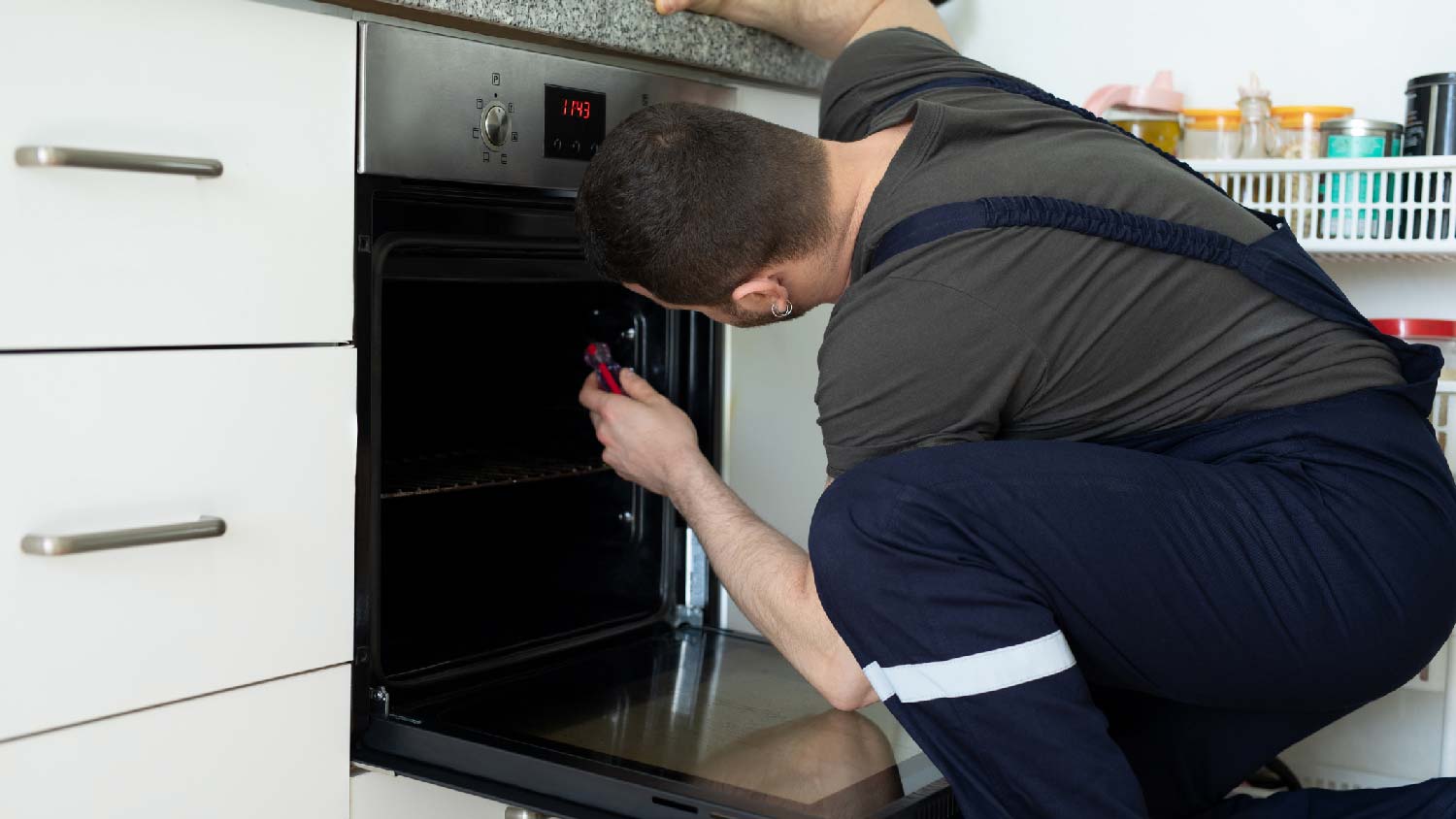
Depending on repair needs and machine age and type, the cost to replace a heating element in a dryer can vary. Learn the average repair costs.
A few clicks can mean all is well with your oven


Many modern ovens make a clicking sound during normal operation.
Sometimes, an oven that clicks may need a new heating element.
Call a repair pro to properly diagnose the problem.
What goes click in the night? It may be your oven. The answer to "why is my oven clicking" is often not something to be worried about. Here's why your oven is so noisy, and what you may need to do about it.
Many modern ovens make a clicking sound when they are heating up and when they are cooling down after use. Some will also go “click, click, click” as they shift through cycles. For example, the oven will "click" as the upper heating element switches on and the lower heating element switches off. These are all normal sounds and a good sign that your oven is working.
No need to take action if your oven is clicking as part of its normal use. Typically, newer ovens are more likely to make noise compared to older models.

Got a gas oven? While older models feature a pilot light that never goes out, newer ones use electric ignition, which lights the pilot when you turn the oven on.
As you switch on a newer gas oven, it's common to hear a “click click click” sound, followed by a "whoosh" sound as the pilot takes flame.
However, if the oven keeps clicking and you never hear that whoosh, that could be a sign of a problem. That's particularly true if the gas oven is not heating and the oven smells like gas.
If your gas oven is clicking and clicking and the flame isn't igniting, it's time to call in a gas oven repair professional near you to inspect it and diagnose the problem. The oven repair pro can fix the ignition so that the flame catches or recommend another course of action, perhaps even oven replacement, depending on the extent of the problem.
While clicking sounds can signal normal oven function, if those sounds suddenly become louder than before, that can be a sign that the heating elements are on their last legs. As they age, the heating elements need to work harder to keep the oven at the right temperature, which can mean they become louder.
Other common signs of an aging heating element include visible damage, such as cracks and blisters, no orange color when the oven is on, and an increase in your electric bills.
If the heating element is on its last legs, it's time to decide whether you should repair or replace your oven. Replacing just the heating elements may be more cost-effective, but if there are other problems with the appliance, getting a new one may help you save money in the long run.
An oven repair pro can help you weigh the pros and cons of each option.
Since clicking is usually a good sign, it's important to know when it's actually signaling a problem with your oven. Signs that you should be concerned by the clicks include:
Smelling gas when you try to turn the oven on.
Food comes out undercooked or unevenly cooked.
The oven doesn't get hot or doesn't get hot enough.

If you suspect that the clicking is due to a problem with the oven's electric ignition or with the heating element, it's time to call in a pro. You want someone to properly diagnose the problem and recommend how to proceed. While you could try to replace the heating elements or ignition yourself, doing so takes some know-how and is not the safest option.
From average costs to expert advice, get all the answers you need to get your job done.

Depending on repair needs and machine age and type, the cost to replace a heating element in a dryer can vary. Learn the average repair costs.

Dryer repair costs as little as $10, but sometimes, replacing your dryer is more cost-effective. But if you have to make repairs, here’s how much it’ll cost.

Several factors impact dryer vent installation cost. Use this guide to learn what affects the cost, and how much you should budget for this project.

If you’re interested in alternative heating options, you need to see our pellet stove pros and cons. Get the right heater for your home.

There are many different sizes of dishwashers, and which one you choose will depend on whether you want a standard dishwasher size or a custom fit.

Without proper ventilation, a washing machine can clog, leak, and cause a dangerous mess in your home. Learn how to vent a washing machine drain with this guide.